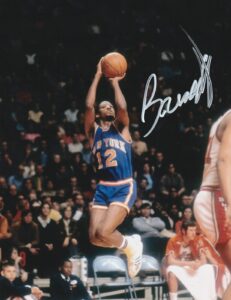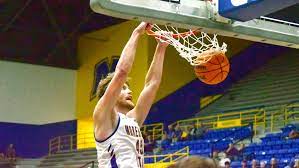The NBA Finals date back to 1947 (when they were known as the Basketball Association of America Finals) and the very 1st NCAA tourney was held in 1939. Olympic basketball competition is even older: it debuted as a demonstration event in 1904 and the men’s version became a medal sport in 1936, with the women finally getting their chance to go for the gold in 1976. The United States has dominated Olympic basketball competition from the start: the men have won 16 gold medals in the 19 tournaments they have participated in during the past 87 years, while the women have won 9 gold medals in the 11 tournaments in which they have competed during the past 47 years. While we have to wait 1 more year until the 2024 Olympics in Paris, HoopsHD’s Jon Teitel will fill the void by interviewing as many prior Olympic players/coaches as possible. We continue our coverage by chatting with Sue Rojcewicz about winning a silver medal and being inducted into the Women’s Basketball Hall of Fame. Today is Sue’s birthday so let us be the 1st to wish her a happy 1!
You were born in Worcester: what made you choose Southern Connecticut State for college? When I was a high school senior the head coach from Southern came to 1 of our games. They had a really good team and after I got to know their players at a basketball camp I wanted to go there.
In addition to basketball you also played field hockey/softball: which sport were you best at, and which sport did you enjoy the most? Basketball. I tried field hockey on a whim since I had never played it before. I was really good at softball because I had played baseball against the boys in the past.
You had 3 straight top-4 finishes in the AIAW National Championships from 1973-1975: how was your basketball team able to play so well despite being such a small school? That was before NCAA scholarships kicked in and the East Coast dominated women’s basketball back then (such as Immaculata in Pennsylvania). We just had a good group and a very innovative coach in Louise O’Neal. She got us together and asked us how good we wanted to be. Women at that time did not do a lot of running but we brought an up-tempo style that was very effective. We also had Mary Anne O’Connor so with 2 future Olympians on 1 team we were pretty good!
In 1975 you were named to the 1st-ever Kodak All-American team (along with fellow future Olympians Nancy Dunkle/Lusia Harris/Ann Meyers): what did it mean to you to receive such an outstanding honor? I was a young whippersnapper so while it was great to be recognized I did not fully understand it at the time. I had played full-court basketball against boys all of my life so I was ahead of the college girls. I was scoring 50 PPG in high school yet did not learn a jump shot until I was in college. I went to a basketball camp in the Poconos after my sophomore year and worked on my ball-handling but they also taught me a jump shot. It was kind of being in “the right place at the right time”.
In the 1975 Pan Am Games you went 7-0: how big a deal was it to win the 1st gold medal for the US since 1963? The Pan Am Games were not a qualifying tournament for the Olympics: the World Championships were. There were only 6 teams at the 1976 Olympics and Canada got 1 of the 6 spots since they were the host nation. We did not get out of our pool at the World Championships so they sent us to Mexico City for the Pan Am Games. We gained a lot of confidence by winning the gold medal: it was a huge accomplishment for me/Mary Anne after losing by a few points in the semifinals over and over during college. We had another national tryout in the spring of 1976 and we were invited for the last 3 days: they actually swapped out 2 of the players on the final roster. We toured Taiwan/Japan to get some experience and played the Russian team a few times: they were just blowing us out.
You played for Team USA at the 1976 Olympics: what did it mean to you to win a silver medal? The final qualifying tournament in Ontario was held 10 days before the Olympics and we won that tourney. At the time we had no money/uniforms because nobody thought that we were going to qualify! Every team played 5 games: we lost our 1st game to Japan and later lost another game to Russia. There were 3 teams with 2 losses and our final game was against Czechoslovakia with the silver medal going to the winner. Bulgaria actually finished 3rd and the undefeated Russians won the gold.
In 1987 as head coach at San Francisco you went 19-8 and won the WCAC regular season title: what is the key to being a good coach? I had great assistants! I was an assistant at Stanford for 6 years before moving on to San Francisco. I am basically a teacher and loved the game but I was not a recruiter/salesperson so it was a struggle for me in D-1. I graduated 7 seniors that summer and rather than try to recruit a bunch of new played I decided to leave the game.
In 2000 you were inducted into the Women’s Basketball Hall of Fame: where does that rank among the highlights of your career? That was huge for me. During my experience with the Olympic team I was playing the best ball of my life but Coach Billie Moore said that I would have to come off the bench. I swallowed my pride and imagined that I was John Havlicek of the Celtics. I was 1 of the 1st players to be inducted so I took it as recognition of my part in our team’s success.
What have you been up to since retiring from coaching? I have continued my spiritual journey: basketball allowed me to learn about myself/life. I went from coaching to working with disabled adults for a couple of years and did some odd jobs before becoming a school counselor, which is where I really found my fit. I loved it, which is why I did it for 25 years, and now I am retired.
When people look back on your career, how do you want to be remembered the most? I played just for the love of it. It is wonderful to be recognized for being a pioneer and in a small way paving the way for the young girls of today. I hope those girls enjoy their experience and what they get out of it: scholarships/money are great opportunities if you have the right motivation.






